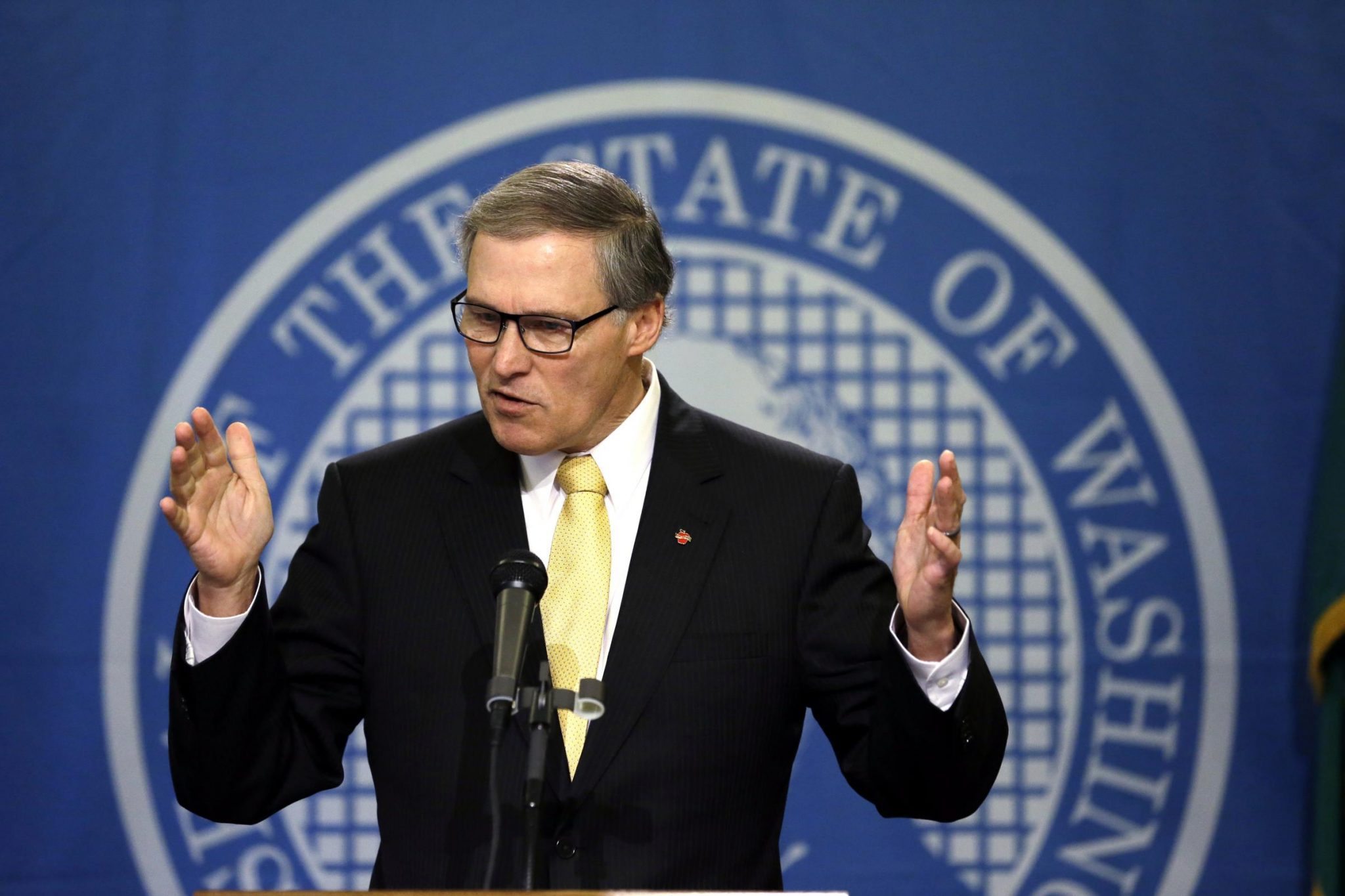Jay Inslee’s 2015-17 budget proposal requires a generous dip into Washington State’s rainy-day fund in order to pay to make government bigger. That prospect does not sit well with State Treasurer Jim McIntire—a fellow Democrat who, unlike Inslee, is worried about the state’s credit rating and financial health. McIntire says Inslee’s proposal “sweeps too much out of the state’s “rainy-day” fund.”
Last week, McIntire wrote a letter to Inslee stating his opposition to spending “$538 million out of the rainy-day account — or more than half of the reserve fund.” McIntire wrote (via the Seattle Times),
“I strongly recommend that this constitutionally-protected reserve fund be allowed to grow from its constitutionally-required annual deposits as the economy recovers instead of spending over half of this important reserve during good economic times.”
McIntire informs Inslee, “Bond investors and ratings agencies look closely at state reserve levels and Washington’s reserves are at about one-third the average of states with similar credit ratings.” Additionally, McIntire points out that leaving the rainy-day fund to grow as scheduled “would go a long way to help in future economic downturns and ease the concerns of investors who buy the state’s bonds.”
The Seattle Times reports that McIntire’s letter repeats his concerns, first raised in December, concerning Inslee’s “proposal to borrow heavily against gas-tax revenues for transportation projects.” Particularly, he warns that the state gas tax “isn’t lucrative enough to withstand more and more debt to build highways.”
Unfortunately, not all of Inslee’s advisors see it McIntire’s way. According to the Seattle Times, David Schumacher, director of the state Office of Financial Management (OFM), justified spending the state’s rainy-day funds in good economic times by insisting on its necessity “to avoid even higher tax increases than the governor has proposed.” This excuse from the same person who claimed Inslee’s $583 million in state employee union pay hikes was somehow “financially feasible.”
Washington voters overwhelmingly support keeping the state’s rainy-day reserves high—in 2011, “voters approved requiring even more cash to be deposited in the fund during periods of high revenue growth.” In any event, as the Seattle Time points out, “spending from the fund requires a three-fifths vote of the Legislature, unless the governor declares an emergency from a catastrophic event, which Inslee has not done in his budget proposal.”
Judging from the Treasurer’s warnings, the “catastrophic event” which the state most fears is Inslee actually getting his way on the budget.




